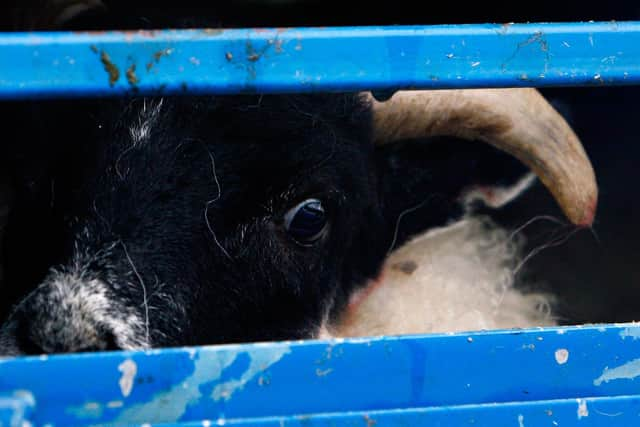UK live animal export ban looks like it might finally happen – Philip Lymbery
Goodness, it’s been a rollercoaster ride. I wrote previously about how this year was a big one in prospect, not least because of the coronation of a new King and a possible ban on live animal exports, a trade that has long blighted Britain’s claim to be a nation of animal lovers.
That a ban pledged in recent manifestos of the Conservatives, Labour and the SNP might come to fruition had a twang of being too good to be true. Especially for people like me who have been advocating for it for decades. Then, in May, came the reality check we’d been expecting. Amid political turmoil, the government dropped its proposed Kept Animals Bill, shattering hopes once more of a live export ban. Scroll forward to Charles’ first King’s Speech at the State Opening of Parliament this month, and there was a fresh government commitment to ban live animal exports in this parliamentary term.
Advertisement
Hide AdAdvertisement
Hide AdThere now seems renewed resolve to end the decades-long practice of sending sheep and lambs on horrifically long journeys, simply to be slaughtered on arrival. To finally draw a line under the practice of sending baby calves on journeys that they are just too young for. Where, at the journey’s end, they spend the rest of their lives on far-away veal farms that all too often have standards so low they’d be illegal in Britain.
I know, I know, we’ve been here before, but somehow, this time feels more real. The language surrounding it feels more committed. The UK Government’s own wording seems more resolute. “We know this is an important issue for the British public, with 87 per cent of the 11,000 respondents to our consultation calling for a ban on live exports for fattening and slaughter,” declared a Department for Environment, Food and Rural Affairs briefing in support of the King’s Speech announcement.
In echoes of sentiments expressed by generations of campaigners since the 1990s, the Bill aims at “stopping… this unnecessary trade”. Yep, “unnecessary”. How many times have we rammed home that message, only to see it continue regardless? The nation’s animal welfare credentials sacrificed on the altar of economic expediency. Well, now it seems, things are different. And thank goodness.
In an age of refrigerated lorries, there really is no excuse for sending animals on long journeys simply to be slaughtered at the journey’s end. Far better for animals to go to a local abattoir and then export the meat. So, why carry on with a live export trade that causes so much suffering through overcrowding, distress, exhaustion, dehydration, hunger and even death?
Far better to listen to the wishes of the people and end live exports for slaughter or fattening from Britain, once and for all. To make sure that never again are tiny calves sent from Scotland to Spain, for example, on journeys lasting 60 hours. To stop a marginal practice that has sullied the farming industry. To show that deeds are worth much more than mere words. That keeping to your word is worth more than a King’s ransom.


Philip Lymbery is chief executive of Compassion in World Farming, a former United Nations Food Systems Champion and an award-winning author. His latest book is Sixty Harvests Left: How to Reach a Nature-Friendly Future. Philip is on Twitter @philip_ciwf
Comments
Want to join the conversation? Please or to comment on this article.
